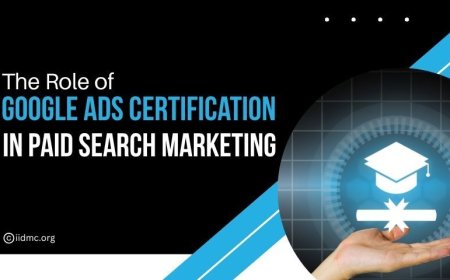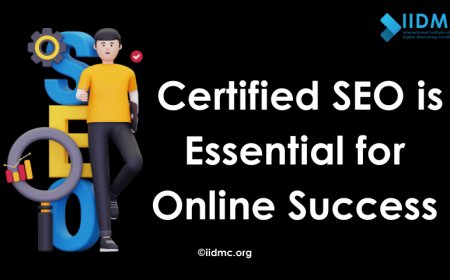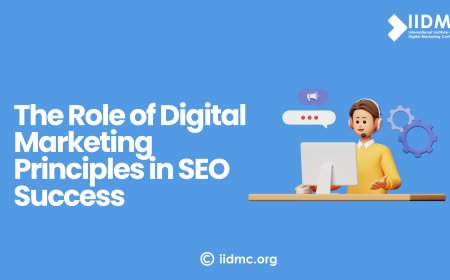The Impact of Social Media in Marketing
Explore the impact of social media in marketing and how it drives brand awareness, customer engagement, and business growth. Learn the key strategies for leveraging social platforms to boost your marketing efforts.
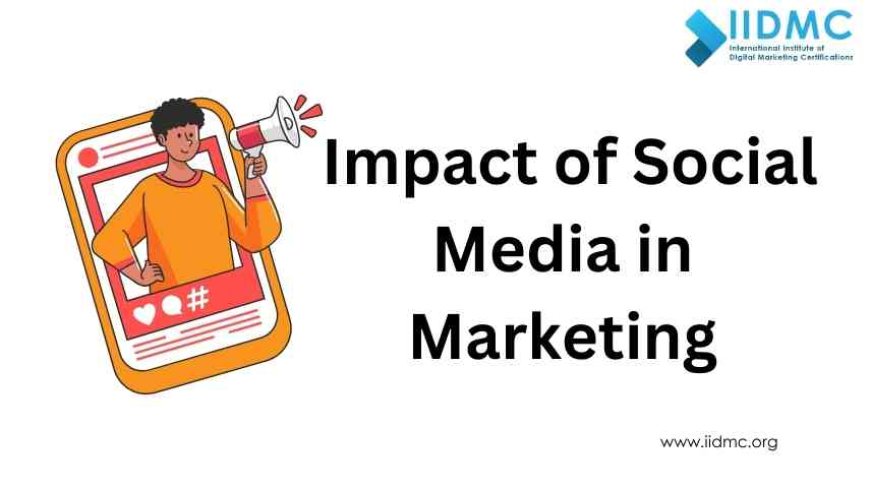
Social media has transformed the way businesses connect with their customers. It offers a dynamic platform where brands can engage directly with their audience, build trust, and boost visibility. From driving brand awareness to increasing conversions, social media plays a crucial role in shaping modern marketing strategies. Understanding the impact of social media in marketing is essential for any business looking to grow in an increasingly competitive world.
Understanding the impact of social media is crucial for modern marketing strategies because it allows businesses to harness their full potential for growth and engagement. Social media provides valuable insights into customer behaviour and preferences, enabling more precise targeting and personalized marketing efforts. It also offers a platform for real-time interaction, which can enhance customer relationships and build brand loyalty. Moreover, Using social media analytics helps in measuring the effectiveness of marketing campaigns and refining strategies based on performance data. In a place where digital presence is key, effectively utilizing social media can significantly boost brand visibility, improve traffic, and ultimately increase sales.
Evolution of Social Media Marketing
Historical Overview
Social media marketing has evolved significantly since the early days of the internet. Initially, platforms like MySpace and early forums served as basic channels for individuals to connect and share content. Businesses soon recognized the potential of these platforms for marketing, using them primarily for brand awareness and customer engagement. The launch of Facebook in 2004 marked a crucial moment, offering advanced features like targeted advertising and analytics. Platforms like Twitter, LinkedIn, and Instagram followed, each bringing new opportunities for brands to engage with their audience in innovative ways.
Current Trends
Social media marketing is a foundation of digital strategy. Recent trends highlight its evolution into an advanced marketing tool. Influencer marketing has become prominent, Using the reach and credibility of social media personalities to improve brand messages. The rise of video content, especially short-form videos on platforms like TikTok and Instagram Reels, has transformed engagement strategies. Social media platforms now offer advanced targeting options, allowing businesses to reach specific demographics with personalized content. The integration of e-commerce features enables direct sales through social media, streamlining the customer journey. As technology and user behavior continue to evolve, social media remains at the forefront of marketing innovation, shaping how brands connect with their audiences.
Benefits of Social Media in Marketing
-
Increased Brand Awareness
-
Improves visibility by reaching a broad audience.
-
Builds brand recognition through regular content sharing.
-
Utilizes features like hashtags and influencer collaborations for wider reach.
-
Targeted Advertising
-
Offers precise targeting by demographics, interests, and behaviors.
-
Allows ads to be shown to users who are most likely to engage.
-
Enhances campaign effectiveness and return on investment.
-
Customer Engagement
-
Facilitates direct interaction through comments, messages, and live chats.
-
Builds a sense of community and strengthens customer relationships.
-
Provides real-time feedback and insights for better adaptation to customer needs.
Challenges and Considerations
-
Content Saturation
-
Issue: The vast amount of content on social media creates high competition, making it challenging for brands to stand out.
-
Solution: Focus on creating unique, high-quality content that resonates with your target audience. Utilize data-driven insights to understand what works and engage with trends that are relevant to your brand.
-
Privacy Concerns
-
Issue: Social media platforms collect extensive user data, leading to potential privacy issues and impacting consumer trust.
-
Solution: Be transparent about data collection practices and prioritize user privacy. Adhere to regulations such as GDPR and provide clear options for users to manage their data preferences.
-
Measuring ROI
-
Issue: Calculating the return on investment (ROI) from social media campaigns can be complex, as it involves tracking various metrics and attributing outcomes to specific actions.
-
Solution: Use advanced analytics tools to monitor key performance indicators (KPIs) such as engagement rates, conversion rates, and customer acquisition costs. Set clear goals and benchmarks to evaluate the effectiveness of your campaigns.
Case Studies and Examples
-
Successful Campaigns
-
Coca-Cola's "Share a Coke" Campaign
-
Overview: Coca-Cola replaced its iconic logo with popular names on bottles, encouraging customers to share photos of their personalized bottles on social media.
-
Result: The campaign resulted in increased brand engagement, a significant boost in social media interactions, and a 2% increase in sales in the U.S.
-
Nike's "Just Do It" with Colin Kaepernick
-
Overview: Nike featured Colin Kaepernick in an ad that highlighted his activism, tying the brand to social justice issues.
-
Result: The campaign generated widespread attention, sparked conversations, and resulted in a 31% increase in online sales during the campaign period.
-
Glossier's User-Generated Content Strategy
-
Overview: Beauty brand Glossier leverages user-generated content by encouraging customers to share their experiences and reviews on social media.
-
Result: This approach has helped build a strong community, driven brand loyalty, and contributed to Glossier's rapid growth and substantial social media following.
-
Lessons Learned
-
Engage with Personalization: Tailoring content to resonate personally with your audience, as seen in Coca-Cola’s campaign, can drive higher engagement and brand affinity.
-
Align with Brand Values: Nike’s campaign demonstrates the power of aligning your marketing with brand values and current social issues to create a strong emotional connection.
-
Leverage User-Generated Content: Encouraging and utilizing user-generated content can enhance authenticity and foster a sense of community, as evidenced by Glossier’s success.
Applying these insights can help create impactful and effective social media marketing strategies.
Future Outlook
-
Emerging Trends
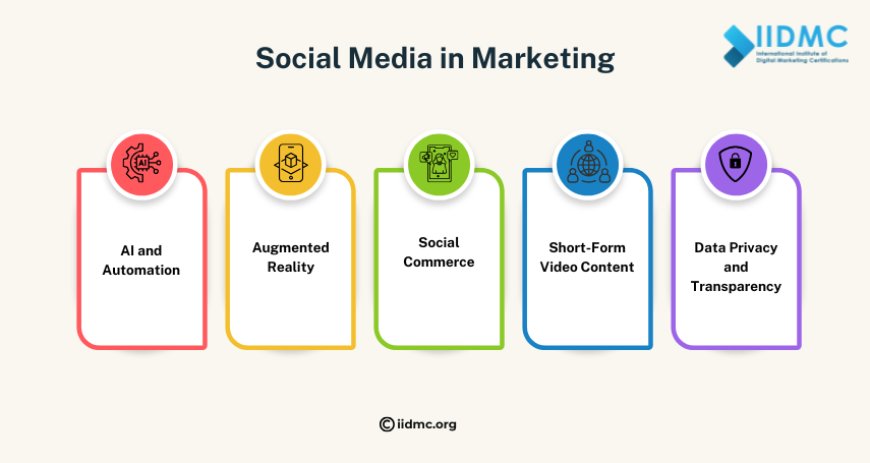
- AI and Automation: The integration of artificial intelligence (AI) and automation tools will enhance targeting precision, streamline content creation, and optimize ad performance.
-
Augmented Reality (AR): AR will become more prevalent, allowing users to interact with virtual products and experiences, creating immersive marketing opportunities.
-
Social Commerce: Social media platforms will increasingly incorporate e-commerce features, enabling direct purchasing through posts and stories, streamlining the shopping experience.
-
Short-Form Video Content: Platforms like TikTok and Instagram Reels will continue to drive engagement with short, dynamic video content that captures users' attention quickly.
-
Data Privacy and Transparency: With growing concerns over data privacy, there will be an emphasis on transparent data practices and compliance with privacy regulations.
-
Preparing for Change
-
Embrace AI Tools: Invest in AI-driven tools for better targeting and content personalization. Stay updated on emerging technologies to leverage their benefits effectively.
-
Explore AR Capabilities: Experiment with AR features to create engaging and interactive experiences for your audience. Stay ahead by incorporating AR into your marketing strategy.
-
Adapt to Social Commerce: Optimize your social media profiles for e-commerce. Utilize shoppable posts and streamline the purchase process to enhance user experience.
-
Focus on Video Content: Develop a strategy for creating engaging short-form videos that resonate with your audience. Stay current with trends to keep your content relevant and engaging.
-
Prioritize Data Privacy: Ensure compliance with data privacy regulations and communicate your data practices transparently to build and maintain trust with your audience.
-
By staying informed about these trends and proactively adapting your strategies, your business can effectively navigate the evolving landscape of social media marketing.
Social media marketing offers significant benefits, including increased brand awareness, targeted advertising, and enhanced customer engagement. However, it also presents challenges such as content saturation, privacy concerns, and difficulties in measuring ROI. Addressing these challenges requires innovative strategies and a proactive approach to stay ahead in a competitive world.
To maximize the potential of social media for your business, assess your current strategies and identify areas for improvement. Consider incorporating advanced tools and techniques to enhance your marketing efforts. For further guidance on optimizing your social media strategy, explore courses and certifications offered by IIDMC (International Institute of Digital Marketing and Certification). By staying informed and adapting to evolving trends, you can achieve better results and improve your brand's success.



























